20+ Best Dog Breeds for Kids

- How to Choose the Best Dog Breed for Children?
- Best Child-Friendly Dog Breeds That Will Be Loved by Your Kids
- How Does Having a Dog Benefit Your Kids?
- FAQs
Dogs and children make the best combination! Not only are they both bundles of joy, but dogs are the perfect example of unconditional love and forgiveness and have enough energy to keep your children entertained. But finding the best dog for kids that can be the perfect best friend for them and be right for your family will need some research. While all dogs have the potential to be loving pets, certain breeds are particularly well-suited to families with kids due to their temperament, size, and energy levels. Here, we will discuss things to remember before adding a furry member to your family and the best dog breeds for children you can opt for.
How to Choose the Best Dog Breed for Children?
When you’re planning to get a dog, consider your family’s lifestyle, budget, and temperament. Your dog needs to fit in well with your family for everyone to have a good relationship with it.
1. Size of the Dog
Some people are not very concerned about a dog’s size as long as it is suitable for their lifestyles. Some big dogs are perfectly suited to life indoors, as are the smaller dogs.
2. Puppy or Adult Dog
Puppies are babies. They require someone to stay home and watch over them as they are young and curious about everything. Adult dogs are generally calmer and do not require as much time and effort, but it should be inquired if the dog is used to being around children.
3. Temperament
Like people, dogs have different personalities that make their character. Some dogs are fearful, while some are confident. Nervous or anxious dogs make excellent watchdogs as they are likelier to alert you to an unknown person’s presence, whereas a confident dog will be friendlier.
4. Lifestyle
High-energy dogs are more active and require owners with a more active lifestyle, as they require a lot of exercise. Some dogs have naturally low energy and are happy to take naps or indulge in low-energy activities.
5. Dogs for Kids With Allergies
The best types of dog for your child, if they suffer from allergies, are the ones who do not shed as much. Less shedding means less dander, and this will mean fewer allergic reactions. The American Hairless Terrier, Bichon Frise, Poodles and Spanish Water Dogs are popular hypoallergenic dog breeds.
6. Cost
The price paid upfront for the dog is not the cost we are talking about – you can always avoid that by adopting a stray puppy (make sure you get the dog’s shots and medication in order before you invite it into the house, though). However, the money it takes to look after the dog is a cost you can’t avoid. This cost will be different for different breeds, too. For example, a larger dog will require more food, whereas a long-furred dog will need more grooming, especially if it lives in a tropical climate. Purebred dogs are also more prone to genetic problems, so you may spend much more on their vet bills than you first imagined.
7. Grooming and Care
Grooming dogs with long fur can be quite the chore. Many people opt to send them to professional groomers. If you do not want to keep running to the groomers, consider a dog with short fur.
Best Child-Friendly Dog Breeds That Will Be Loved by Your Kids
Finding the best dog breeds for kids involves looking for traits like friendliness, patience, and a playful nature. Certain breeds are known for their exceptional ability to bond with children, making them ideal family pets. Here we have for you a list of the best dog breeds for young children:
1. Beagle

Beagles are sweet, gentle, and loving towards children. They are a joy to be around and are small to medium-sized dogs.
2. Newfoundland

If you have watched Peter Pan, then you will know of the famous Newfoundland character as the Darling family’s pet dog Nana was one. This breed is one of the gentle giants, as it is a dog well known for its sweet personality. They are also excellent swimmers.
3. Bull Terrier

Unlike most small dog breeds, these dogs are not easily injured by rough play as they are very sturdy. These dogs may look intimidating, but are known to have friendly and fun-loving personalities.
4. Bichon Frise

This little dog is mostly hypoallergenic and is also happy-go-lucky, energetic, and vivacious. These dogs may need to be groomed regularly, but their fur will not give much trouble if you have a child with allergies.
5. Collies

The breed Collie may bring to mind the lovely orange and white, long-snouted dog from the popular TV show, “Lassie,” but that is only one kind. Another common type of collie is the Border Collie, distinguished by its beautiful black and white coat. These dogs are energetic, loving, and highly intelligent, and make great companions for children.
6. Mutt

Also called mixed breeds, mutts are just as loving and intelligent as purebred dogs. However, they have the additional benefit of teaching your child about kindness, as most of them are adopted from the shelter. Giving a home to the dogs found at shelters will give your children something to ponder and knowing they saved a dog often helps strengthen their bond.
7. Vizsla

These medium-sized dogs were bred as hunting dogs, and are highly intelligent. They will require a certain amount of exercise each day, and with kids, their energy is likely to come out through play. This dog will be a loyal companion to your child.
8. Boxers

These beautiful dogs are powerful, alert, and very athletic. They are medium-sized dogs that were bred to be guide dogs. Many Boxers were used as Seeing Eye dogs, and during wars, they were used as courier dogs. According to the American Kennel Club, they have a special love for attention, especially for children.
9. Poodles
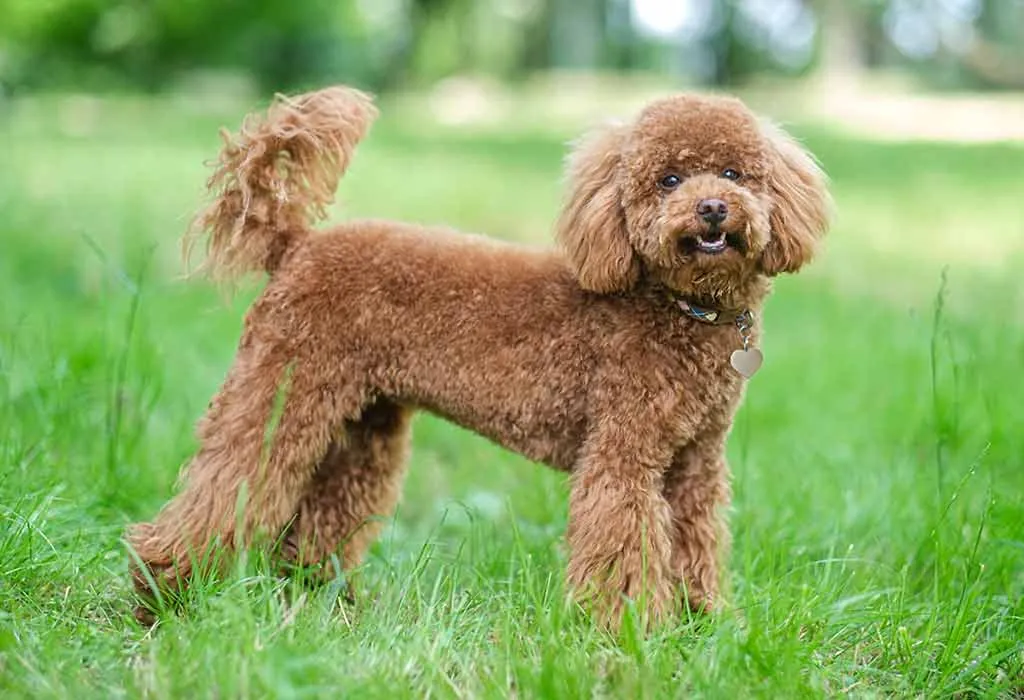
If you have watched Oliver and Company, you will be familiar with Georgette, the privileged award-winning poodle. Poodles are an intelligent dog breed, that is easy to train, and friendly with kids.
10. Labrador Retrievers

Yellow, chocolate, and black, these beautiful dogs are one of the best dog for kids and are known for being friendly and loving family pets.
11. Golden Retriever

These sweet, playful dogs have become a favourite among families as they are great companions for children and adults alike.
12. Pit Bulls

These dogs have got a bad reputation for being aggressive and attack dogs, but they are not really like that. On the contrary, they make great family pets because of their playful, intelligent, and loving nature.
13. Pugs

One of the best small dog breeds for kids, these little sweethearts seem to live to make you happy. They will provide the family with endless amounts of fun and joy, not to mention, they are the perfect size for a good cuddle, even for your little one.
14. German Shepherds

These dogs are on every list as they are such an intelligent breed. They are lovely family pets and can be trained to do just about anything.
15. Mastiffs

This is another breed of gentle giants and is one of the oldest breeds in the world. They have a very affectionate nature and become attached to and love their family to bits. They make wonderful companions for children.
16. Cavalier King Charles Spaniel

These dogs have a fancy pedigree indeed. They are one of the first lapdog breeds and were much loved by French royalty. They are great towards children and love nothing more than to be pet all day long. They are ideal dogs for kids with autism.
17. Basset Hounds

Though these dogs were originally bred to be hunters, they are quite lazy by nature and love to take long naps. They love attention from children and will become quite attached to them.
18. Bulldogs

These dogs are sweethearts and are very affectionate. They are great family pets. When they are puppies, they have a lot of energy and are very playful, but as they get older, they begin to calm down.
19. French Bulldog

Perfect for apartment life, these small dogs are low maintenance and quiet. They are alert and playful with easy-going personalities.
20. Cocker Spaniel

Ever seen Lady and the Tramp? Those who have will instantly recognise this breed. With regular exercise and play, these dogs are friendly and get along well with children.
21. Shih Tzu

Shih Tzus are known for their friendly and affectionate nature. They are great with kids and enjoy being part of family activities.
22. Havanese
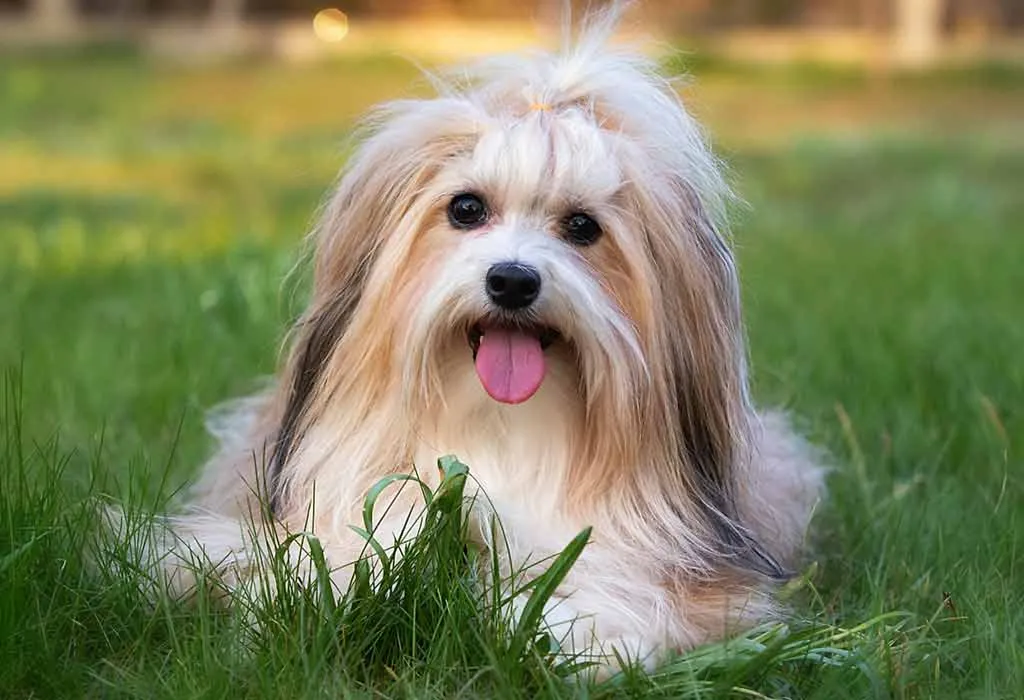
Havanese dogs are known for their cheerful and sociable personality. These small, sturdy dogs thrive on human companionship, and their playful nature makes them wonderful companions for children.
How Does Having a Dog Benefit Your Kids?
The simple truth of why every kid should have a dog is that dogs make children very happy. Here are a few benefits of getting dogs for children:
1. Partner in Crime
Not everyone is lucky enough to have a sibling to play with while growing up, but children will never feel lonely if they have a lovable companion to cuddle and play with. Dogs are often a source of great comfort for children, even when going through big and complicated life lessons.
2. Canine Confidence
If you have a toddler, the mere presence of your dog will provide an incentive and a friend for your child to chatter away to, thereby giving them a chance to practice their verbal skills. Most dogs are sweet enough to patiently listen to a toddler’s babbling, even if they do not understand a thing they are saying, and this will give your child even more confidence to keep talking and learning (2).
3. Perfect Playmate
Dogs encourage your children to put down their video games and actively run around. They have a goofy way of bringing out the child in anyone. Your children will not be able to refuse those adorable puppy dog eyes.
4. Dr. Paws
Children who are raised with a dog are much less likely to have allergies or develop asthma and will also develop a much stronger immune system (5).
5. Personal Protection
Does your child fuss about sleeping alone because the boogie man may be hiding under the bed? Well, your dog is sure to stop all that by providing your child with a sense of comfort and security.
6. Res-Paw-nsibility Program
A dog must be walked, bathed, trained, and fed, all of which you can get your child to help you. This will give them little life lessons on what it is like to look after another living being, lessons which will come in handy as they grow up (1).
7. Little Empaths
If your children grow up with a dog, they will be very empathetic and have more respect for life. A dog is very expressive and will show different emotions such as fear, distress, and joy, among others, and your children are bound to feel the need to comfort their friend (4).
8. Social Support
Dogs provide excellent social support, especially during transitional periods in your child’s life. When a child transitions to adolescence or during times when things in the family may change, the family dog will help them through it. A dog can also provide comfort to your child when moving to a new place or a new school or when the family has a breakdown or illness.
9. Lift Their Spirits
It does not matter if your child has had a bad day or is unhappy about something. One look at that goofy face and into those loving eyes and your child will be bound to cheer up.
10. Better Sleep
Children who have dogs often experience improved sleep quality. The dog’s calming presence can help ease bedtime fears and anxieties, leading to more restful sleep (3).
FAQs
1. How do I introduce a new dog to my children?
Introducing a new dog to your children should be done gradually and calmly. Start by allowing the dog to explore its new environment without much interaction. Teach your children how to approach the dog gently and respect its space. Supervise all initial interactions and encourage positive experiences with treats and praise to help build a bond between the dog and your children.
2. How can I ensure my dog is well-behaved around my children?
To ensure your dog is well-behaved around children, start with proper training and socialisation from a young age. Consistent positive reinforcement techniques can help your dog learn good behaviour. Teaching your children how to interact with the dog respectfully is also essential.
3. What are some low-maintenance dog breeds that are good with kids?
For families looking for low-maintenance dog breeds that are good with kids, consider breeds like the Beagle, Boxer, or Bulldog. These breeds are known for their easygoing nature and don’t require excessive grooming. Their friendly and patient temperaments make them ideal companions for children without demanding too much upkeep.
Studies show mixed breeds have lower chances of being born with inherited congenital diseases than purebreds. Though they have this in their favour, with mixed breeds, you cannot always make out how big the dog will be when it grows up, as there is no real way of saying which breeds have been mixed into its ancestry line. This is where purebreds have the main advantage. With them, there is no surprise about how big the dog will be when it gets bigger.
Whether you get a mutt or a purebred dog, having a dog will benefit your kids, and the furry family members will make every day fun and memorable.
References/Resources:
1. The Benefits of Adding a Pet to the Family; Children’s Hospital Colorado; https://www.childrenscolorado.org/conditions-and-advice/parenting/parenting-articles/benefits-of-pets/
2. How Your Child Can Benefit From Having a Pet; Pathways; https://pathways.org/benefits-of-pets/
3. Gadomski. A. M, Scribani. M. B, Krupa. N, et al.; Pet Dogs and Children’s Health: Opportunities for Chronic Disease Prevention?; PubMed Central; https://www.ncbi.nlm.nih.gov/pmc/articles/PMC4674442/
4. Trautner. T; The benefits of a family pet; Michigan State University; https://www.canr.msu.edu/news/the_benefits_of_a_family_pet
5. Exposure to pet and pest allergens during infancy linked to reduced asthma risk; National Institutes of Health; https://www.nih.gov/news-events/news-releases/exposure-pet-pest-allergens-during-infancy-linked-reduced-asthma-risk
Also Read:
Introducing Pets to Babies
List of Best Low Maintenance Pets
Treatment for Dog Bites in Children
Best Pets for Kids – From Dogs to Rabbits
Was This Article Helpful?
Parenting is a huge responsibility, for you as a caregiver, but also for us as a parenting content platform. We understand that and take our responsibility of creating credible content seriously. FirstCry Parenting articles are written and published only after extensive research using factually sound references to deliver quality content that is accurate, validated by experts, and completely reliable. To understand how we go about creating content that is credible, read our editorial policy here.







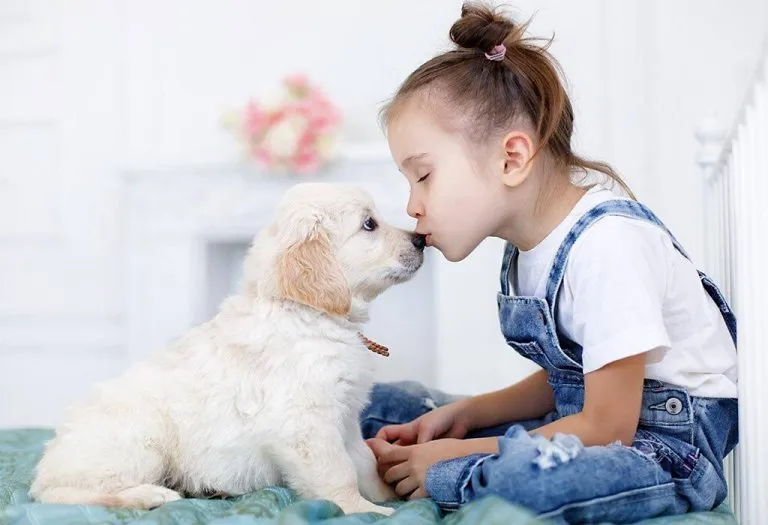

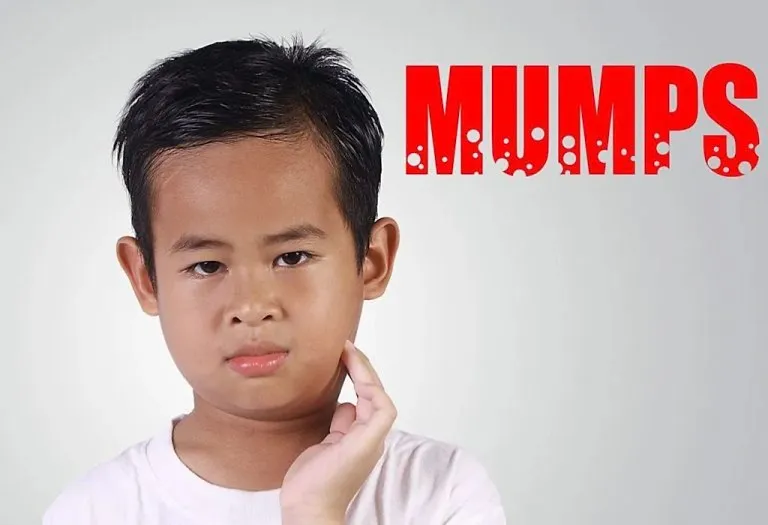
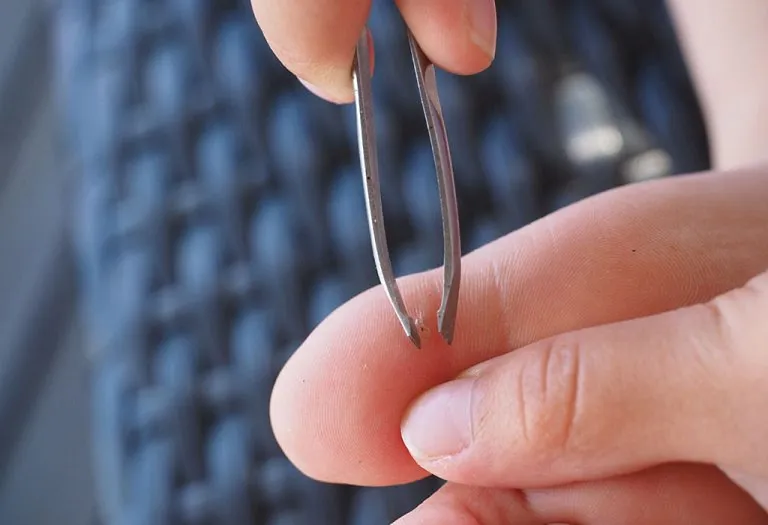
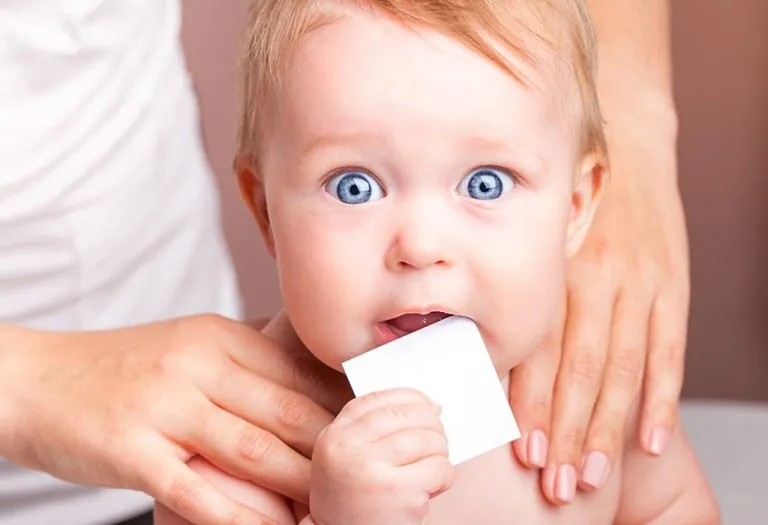
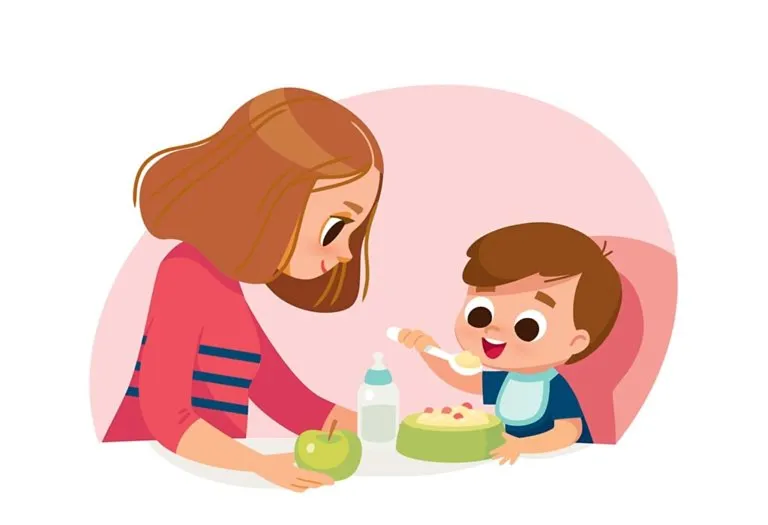


.svg)
















